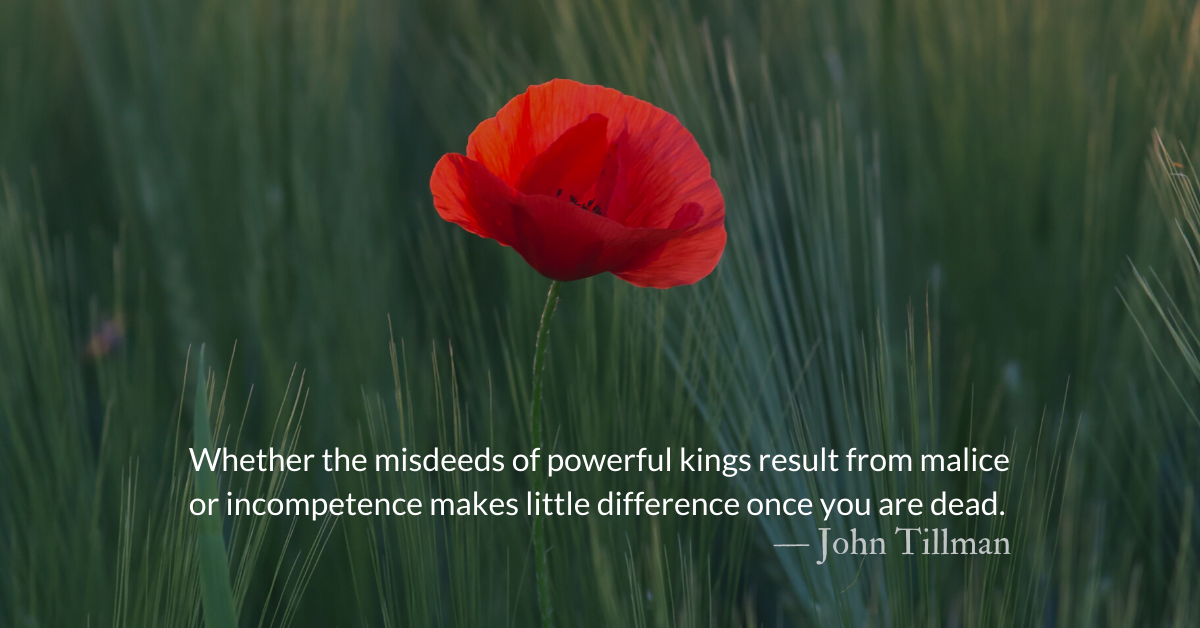Scripture Focus: Esther 7.5-6
King Xerxes asked Queen Esther, “Who is he? Where is he—the man who has dared to do such a thing?” Esther said, “An adversary and enemy! This vile Haman!”
Reflection: Lesson from Xerxes
By John Tillman
Racism today is supposedly not acceptable. But it’s quite common if you look around.
Esther stops short of accusing Xerxes of conspiring to kill her race (when that would be a factual argument), however, Xerxes is not painted kindly by the author. Xerxes is portrayed as impulsive, gullible, reactionary, forgetful, and seemingly ignorant of some of his own laws. Xerxes either willingly or out of incompetence participates in ethnic-cleansing for hire when he consents to Haman’s scheme to exterminate the Jewish population. One might argue that Xerxes is only racist by ignorance, not intent. However, whether the misdeeds of powerful kings result from malice or incompetence makes little difference once you are dead.
Haman’s scheme might seem far removed from modern times. But ethnic cleansing and genocide occur with regularity in today’s world. It just doesn’t crack the first page of the news anymore. Many in the past few years have complained that western news organizations provide wall-to-wall coverage of shooting incidents in which relatively small numbers of Americans or Europeans are killed, but rarely cover to the same extent far worse atrocities in Africa or Asia.
Xerxes has one big mark in his favor that modern leaders could learn from—Xerxes does not react negatively toward those revealing his mistakes and he decisively acts to correct his mistakes. Because of the unique oddities of Persian laws, he can’t simply reverse what he has done, he has to positively act against his previous orders. But he does it. There is no defensiveness. No lashing out at the person confronting him. No doubling down and killing everyone accusing him.
Xerxes does this both when he discovers how deeply deceived he was in Haman and earlier when he discovers that he has neglected to honor Mordecai for saving his life. Oh, that we had more leaders with this kind of integrity!
Racism is a sin so deeply ingrained in us that it is nearly the last thing to be rooted out by the redemptive reconstruction of the Gospel. But we know the villain’s end is coming. God will bring to completion the good work that he began in us. And that includes crushing out of us the infectious taint of racism.
Divine Hours Prayer: A Reading
Jesus taught us saying: “The lamp of the body is the eye. It follows that if your eye is clear, your whole body will be filled with light. But if your eye is diseased, your whole body will be darkness. If then, the light inside you is darkened, what darkness that will be!” — Matthew 6.21-23
– From The Divine Hours: Prayers for Autumn and Wintertime by Phyllis Tickle.
Today’s Readings
Esther 6 (Listen -2:08)
Romans 1 (Listen -4:13)
Read more about Racism Wears a Mask
John Wesley points out Esther could have answered Xerxes by saying, “It was you, King!…You not only allowed this to happen, but profited from it!”
Read more about Avoiding Haman’s Petard
If we don’t want to act like Haman, we need to be careful not to be motivated like him, think like him, or speak like hm.







